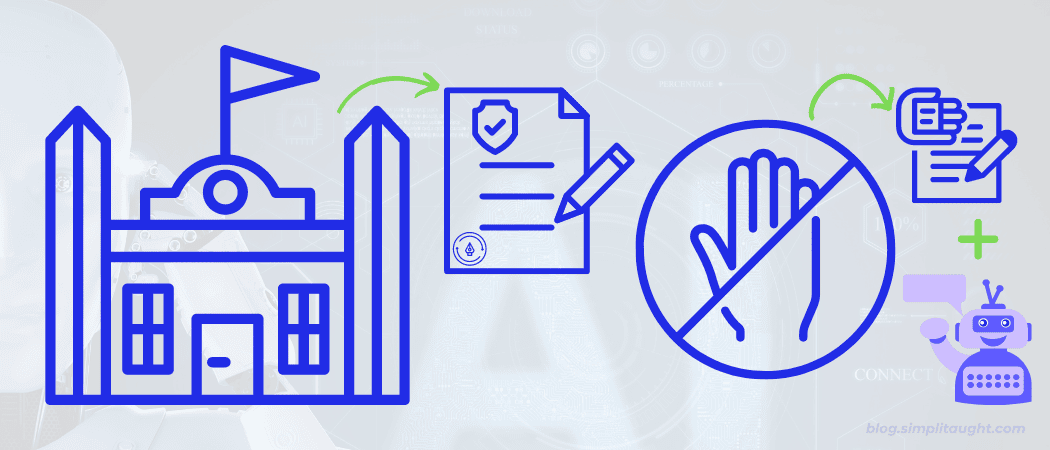Australia’s top universities are redesigning exams and upgrading their integrity policies to combat the risk of students using sophisticated artificial intelligence to cheat.
The Rise Of ChatGPT!
It comes in response to the launch of a powerful and publicly-available artificial intelligence and machine learning-enabled chatbot ChatGPT. A single line of prompt text is enough for this chatbot to devise unique essays.
Group of Eight (Go8)
The Australian universities have formed a “Group of Eight” (Go8), comprising UNSW, UniMelb, UWA, ANU, University of Adelaide, Monash, University of Queensland, and the University of Sydney. These universities are proactively tackling the emergence of artificial intelligence. They are doing so by redesigning assessments and utilizing new targeted detection methods.
Chief Executive Vicki Thomson said,
“universities have revised how they will run assessments in 2023. They are believed to be conducting “Live+” exams for online and offshore students. In such examinations, a supervisor will monitor students’ computer screens throughout the exams. It will be more in-person supervision for local learners, where they will take pen-and-paper tests and exams. The universities also aim to limit “Record+” exams, where supervisors must review the computer screens after the exams, for units with “low-integrity risks.”
Unprecedented Measures
Moreover, universities are “specifically addressing AI in their academic integrity policies and their code of conduct,” implying that if learners breach these policies, they will be marked down or fail.
Additionally, the University of Sydney updated its policy on academic integrity in November. The policy includes “content generated using artificial intelligence,” which is set to go live in semester 1, 2023. The University of Queensland is also following suit and has mentioned AI as a form of contract cheating in the policies implemented next year.
“At the moment, we’ve seen very few cases where AI is suspected, and the work has been of a very low standard that would not achieve a pass mark. However, we know that could change and are preparing accordingly,”
said a Sydney University spokesperson.
The University of Sydney is also piloting “Bring Your Own Laptops” exams, where educators deliver tests online but with face-to-face supervision.
Preparing for Sophisticated Response
Most institutions are banning AI through their policies, but according to Tertiary Education Quality and Standards Agency (TEQSA) Integrity Unit Director Dr. Helen Gniel, this response is short-lived, and educational institutions must prepare for a long-term and more sophisticated response to open-source AI tools.
Also, while it is apparent that learners are using artificial intelligence to create work, whether it amounts to cheating remains unclear and presumptuous.
Copywriters are using these tools so that some disciplines can take a different path. Therefore, learners must learn how to use such tools and how to use them ethically during their studies.
Learn more: What is EdTech? An In-depth Guide
Gniel commented that the sector was
“Alive to the threat (AI) could pose if not handled properly.”
but added,
“It’s not something I think is insurmountable for our sector to deal with.”
According to her, essays are just one form of assessment available to universities, but she hinted at some tools they could use to determine if an essay was written by human or artificial intelligence. For example:
“You’d expect the document properties to look fundamentally different. The total editing time, for example … Looking at that metadata provides a lot of clues to these kinds of investigations,”
“You’d expect the document properties to look fundamentally different. The total editing time, for example … Looking at that metadata provides a lot of clues to these kinds of investigations,”
She added.
Read more: Online Learning: A Complete Guide for All
Crackdown on Academic Cheating Websites
Since July 2021, TEQSA has shut down more than 150 academic cheating websites, but AI presents a fundamentally different challenge because it cannot blackmail students.
“One is increasingly predatory commercial service that carries risks for the individual students. And one is a technology enhancement which is almost un-owned, which the sector is aware of and has to adapt to.”
Flinders University modified its academic integrity policy in advance of 2019 following the discovery that early papers produced by AI were accepted at international conferences.
Then-Chair of Flinders’ Academic Senate, Professor John Roddick, commented,
“the conversation in Senate was that if you could fool conference organizers, we should ensure we were covered in our policies if students used something similar.”
Also, the academic integrity policies of the Institute of Health and Management (IHM) and the Adelaide Business School (ICHM) define AI as a type of contract cheating.


